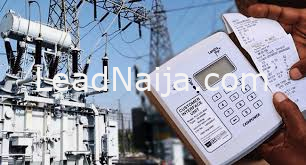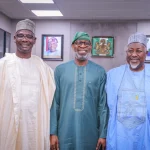The Federal Government says Nigerians should brace up for fresh electricity tariffs in months.
President Bola Tinubu’s Special Adviser on Energy, Olu Verheijen, said this in an interview in Dar es Salaam, Tanzania, according to Bloomberg.
Verheijen was in Tanzania attending a World Bank-backed conference where Nigeria presented a $32 billion plan to boost electricity connections by 2030. Private investors are expected to contribute $15.5 billion and the rest will come from public sources, including the World Bank and African Development Bank.
The energy adviser said Nigeria’s power prices need to rise by about two thirds for many customers to reflect the cost of supplying it.
Higher electricity tariffs, which need to be balanced by subsidies for less-affluent consumers, are required to fund the maintenance needed to improve reliability and to attract private investors into power generation and transmission, said Verheijen.
“One of the key challenges we’re looking to resolve over the next few months is transitioning to a cost-efficient but cost-reflective tariff,” Verheijen said.
This is needed “so the sector generates revenue required to attract private capital, while also protecting the poor and vulnerable,” she said.
The move to raise tariffs comes amid mounting pressure from Nigeria’s debt-burdened electricity distribution companies for tariffs to be cost-reflective so they can improve their finances.
Nigeria’s privatised generation and distribution in 2013, yet prices set by the government’s Nigeria Electricity Regulatory Commission don’t cover the suppliers’ costs. Government subsidies cover some of the difference, but profitability is hard to achieve.
Nigeria’s power industry needs significant investment to achieve its development aims, Verheijen said. Of the country’s 14 gigawatts of installed power, only 8 gigawatts can be transmitted around the country and just four or five gigawatts can be directly delived to homes and businesses, she said.
Siemens AG is working with the government on a $2.3 billion project to improve transmission and distribution, while more than 7 million Nigerians in rural areas have been given access to power via decentralized renewable projects.
“Your energy policies have to be closely linked with your own ambition for your country,” Verheijen said.“ Our own ambition is to be a $1 trillion economy in five years and to move to an upper-middle income country in 25 years.”
Nigeria’s gross domestic product is currently just under $200 billion, according to the International Monetary Fund.Tap Here for the Full Story



